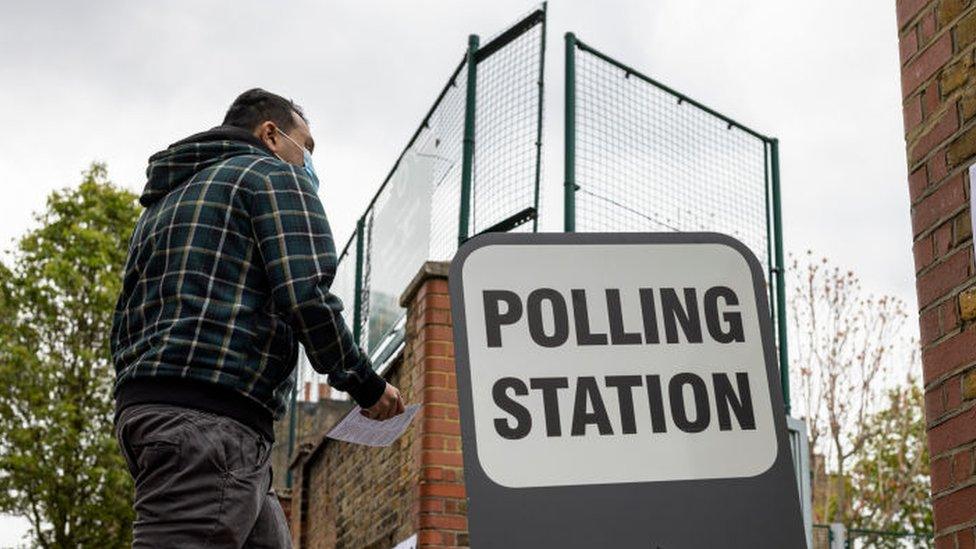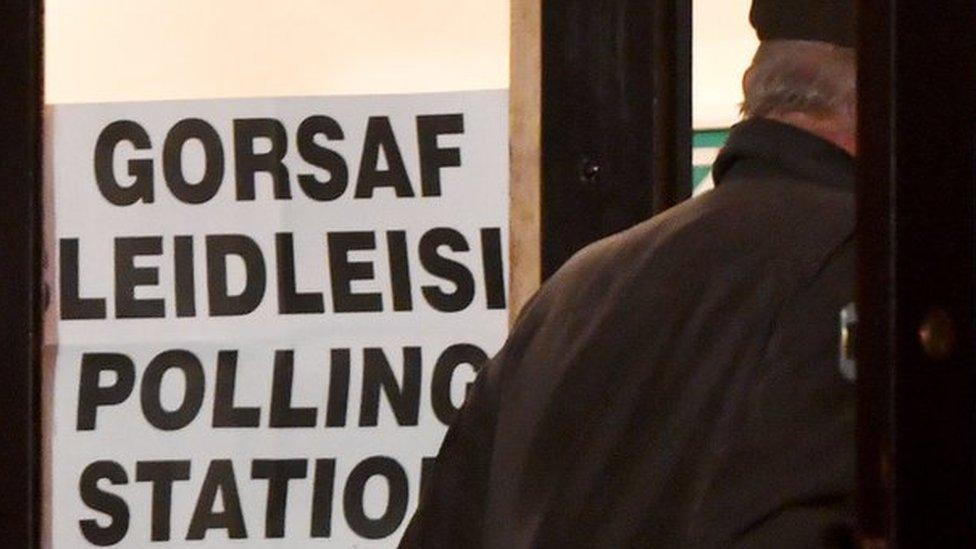Voter ID: MPs urge government to rethink plans for election checks
- Published

The UK government should rethink its plans to require voters to show photo ID at polling stations, MPs say.
The Commons constitutional affairs committee said the move was likely to reduce turnout and make it more difficult to vote.
It said the proposals should not move ahead without further research into how it would affect different groups.
The government argued the move was necessary to protect elections from "the potential for voter fraud".
The requirement would apply to UK general elections, English local elections, and police and crime commissioner elections in England and Wales.
Photo ID is not currently required to vote in England, Wales and Scotland - but has been mandatory in Northern Ireland since 2003.
The requirement would be introduced in the government's Elections Bill, a wide-ranging law currently making its way through Parliament.
Voters would be able to show ID cards including driver's licences, and UK, Commonwealth or European Economic Area (EEA) passports.
They will also be able to show photographic travel passes, disabled parking badges, or apply for a free special voter ID card.
An official assessment, external has put the total cost of introducing photo ID at £120m over 10 years, including £15m to produce the free cards.
'Dirty election tactic'
Labour opposes the requirement, arguing it is unnecessary and the need to acquire documents could put marginalised groups off voting.
The party has previously called it a "dirty election tactic", and accused the Conservatives of engaging in "blatant voter suppression".
In a report scrutinising the bill, the cross-party committee said there was a risk a "significant number of people" might not vote due to the new rule.
The MPs said the plans should not proceed, pending more research into how they would impact people with "protected characteristics" - such as sex, race, age and disability.
It added voter ID would "remove an element of the trust inherent in the current system" and make voting more difficult.
Although they noted cases of voter fraud were likely to be under-reported, the MPs said there was "currently no evidence" this was widespread.
Complacency warning
Conservative MP William Wragg, who chairs the committee, added: "We remain unconvinced that the scale of the problem justifies the solutions as they have been put forward."
The committee also recommended that photo ID such as university cards or cards issued by any public body should be eligible.
The government argues the free voter ID card it is introducing will guard against disenfranchisement, and official survey data shows 98% of voters hold some form of photo ID.
Its communities department, which recently took over responsibility for running elections, said: "We should not be complacent when it comes to ensuring our democratic process remains secure.
"Our Elections Bill will stamp out the potential for voter fraud, and will bring the rest of the UK in line with Northern Ireland," a spokesperson added.
Related topics
- Published13 September 2021
